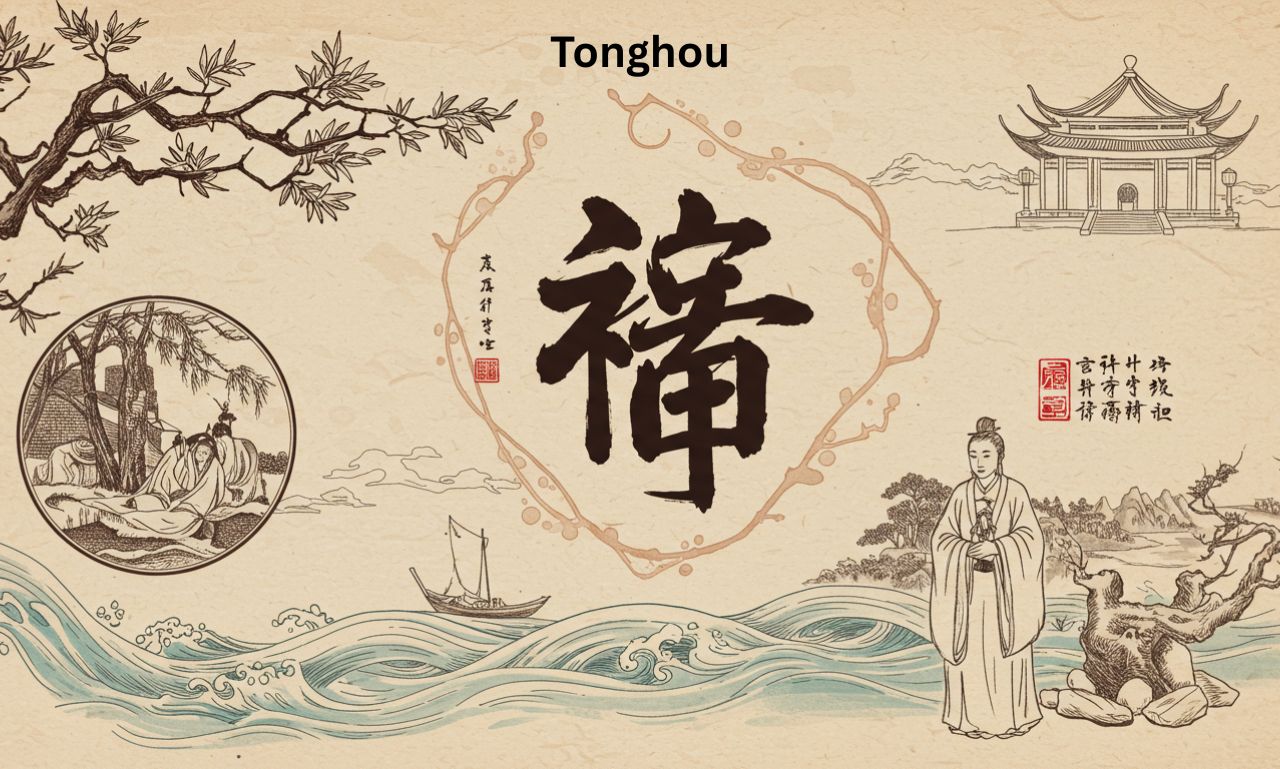More
What is workers compensation insurance Aupeo

What is workers compensation insurance Aupeo: When it comes to running a business, ensuring the safety and well-being of employees should be at the forefront of every employer’s mind. But what happens when an accident occurs? This is where workers’ compensation insurance steps in as a crucial lifeline for both employees and employers alike. It’s not just a legal requirement; it’s also a commitment to safeguarding your workforce. One name that stands out in this realm is AUPEO, known for simplifying the complexities of worker’s compensation insurance. Curious about how this works and why it matters? Let’s dive into the essentials of worker’s compensation insurance and discover what AUPEO brings to the table.
Understanding AUPEO and Its Role in Workers’ Compensation
AUPEO, or the Australian Union of Professionals and Employees Organization, plays a pivotal role in shaping worker’s compensation insurance. This organization advocates for employees’ rights and provides essential resources to help navigate the complexities of workplace injuries.
Understanding AUPEO means recognizing its commitment to ensuring fair treatment for workers during their recovery process. They offer guidance on how to access benefits, manage claims, and understand legal obligations.
Through educational programs, AUPEO empowers employees with knowledge about their entitlements under worker’s compensation laws. Their expertise helps demystify procedures that can often feel overwhelming.
Moreover, AUPEO collaborates with employers to promote safer work environments. By focusing on prevention strategies alongside compensation solutions, they aim to reduce workplace incidents overall.
This dual focus not only protects individual workers but also fosters a culture of safety within industries across Australia.
Benefits of Workers Compensation Insurance for Employees
Workers compensation insurance serves as a vital safety net for employees. When an injury occurs on the job, this coverage ensures that medical expenses are taken care of promptly. Employees can focus on recovery without the burden of financial strain.
Additionally, it provides wage replacement benefits during periods when workers cannot perform their duties due to injuries. This support helps maintain financial stability in challenging times.
Moreover, having this type of insurance encourages a safer work environment. Employers are often more proactive about workplace safety measures when they know they have coverage obligations.
Furthermore, worker’s compensation fosters peace of mind among staff. Knowing that protection is in place allows employees to perform their tasks confidently and effectively.
This system also facilitates rehabilitation services for those who need them, helping injured workers reintegrate into the workforce smoothly once they’re ready to return.
Benefits of Workers Compensation Insurance for Employers
Worker’s compensation insurance offers significant advantages for employers. First, it provides financial protection against costly claims arising from workplace injuries or illnesses. This coverage ensures that medical expenses and lost wages are handled without draining company resources.
Additionally, having this insurance fosters a safer work environment. When employees know they’re protected, morale improves and productivity often increases. A proactive approach to safety reduces the likelihood of accidents occurring in the first place.
Employers also benefit from legal protection under worker’s compensation laws. It minimizes the risk of lawsuits related to workplace injuries, providing peace of mind during challenging situations.
Furthermore, offering workers compensation can enhance a company’s reputation. Businesses seen as caring for their employees attract top talent and build loyalty within their workforce. Investing in worker’s compensation is not just about compliance; it’s about cultivating a positive workplace culture that values employee well-being.
How to Obtain Workers Compensation Insurance through AUPEO
Obtaining workers’ compensation insurance through AUPEO is a straightforward process designed to cater to your business needs. Start by gathering essential details about your company, including employee numbers and industry specifics.
Next, visit the AUPEO website or connect with an authorized agent. They’ll guide you through tailored options that align with your operation size and risk exposure.
You may need to fill out an application form detailing relevant information for accurate coverage assessment. This step ensures that the policy you receive fits your unique requirements.
Once submitted, expect a prompt review of your application. After approval, you’ll discuss premium rates and payment plans suited to your budget.
Don’t hesitate to ask questions throughout this process. Understanding every aspect will empower you to make informed decisions regarding your workers’ compensation coverage.
Alternative Options for Obtaining Workers Compensation Coverage
When traditional worker’s compensation insurance doesn’t meet your needs, alternative options can provide essential coverage. Self-insurance is one route that allows businesses to set aside funds for employee injuries instead of paying premiums. This option suits larger companies with the financial stability to manage claims directly.
Captives are another interesting choice. In this setup, a group of businesses creates their own insurance company to cover risks collectively. This arrangement can lead to significant savings and tailored policies.
Additionally, organizations might explore state-sponsored programs or industry-specific pools designed for niche markets. These alternatives often provide competitive rates and specialized support suited for particular sectors.
However, it’s crucial to weigh the pros and cons carefully before choosing an alternative path. Each option has unique requirements and implications that could impact your business in varying ways.
Understanding the Basics: Your Safety Net at Work
Worker’s compensation insurance acts as a crucial safety net for employees. It provides financial support when injuries occur on the job. This coverage ensures that workers can focus on recovery without the looming worry of medical bills.
When an employee gets hurt, they shouldn’t have to bear the burden alone. Worker’s compensation steps in to cover medical expenses and replace lost wages during their time off work.
Employers also benefit from this system. By providing a secure environment and proper coverage, they cultivate trust within their workforce. Employees feel valued knowing there’s protection in place if things go wrong.
Understanding this basic concept is essential for both workers and employers alike. It fosters a safer workplace culture while ensuring everyone has access to the necessary resources after an incident occurs.
Why Every Business Needs Workers Compensation Insurance
Every business, regardless of size or industry, faces potential risks. Accidents can happen in any workplace. Worker’s compensation insurance serves as a vital safety net.
Having this insurance protects employees from financial hardship due to work-related injuries. It covers medical expenses and lost wages, ensuring they receive necessary support while recovering.
Employers also benefit significantly. This coverage helps mitigate legal liabilities arising from employee claims. Without it, businesses could face hefty lawsuits that threaten their stability.
Moreover, demonstrating a commitment to worker safety fosters trust among employees. A supportive environment boosts morale and enhances productivity.
Additionally, many states mandate worker’s compensation insurance for businesses with employees. Compliance is crucial to avoid penalties and ensure operations run smoothly.
Investing in worker’s compensation isn’t just about protection; it’s about creating a safe and responsible workplace culture where everyone feels valued and secure.
Protecting Your Workforce: A Closer Look at AUPEO
Safety is a cornerstone of any successful business. AUPEO plays a crucial role in supporting this principle by providing tailored workers’ compensation insurance solutions.
With its focus on risk management, AUPEO offers resources that help identify and mitigate workplace hazards. This proactive approach not only protects employees but also fosters a culture of safety within the organization.
When injuries or accidents do occur, AUPEO ensures that employees receive prompt medical care and support. Their streamlined claims process alleviates stress for both employers and injured workers, allowing everyone to return to their normal routines more quickly.
Additionally, AUPEO provides valuable training programs aimed at enhancing workforce knowledge about safety practices. By investing in education, businesses can reduce incidents over time while nurturing employee confidence.
Choosing AUPEO means prioritizing the well-being of your team while safeguarding your business’s future against unforeseen challenges.
Navigating Claims: How Workers Compensation Insurance Works
Navigating claims with worker’s compensation insurance can feel daunting. Understanding the process is crucial for both employees and employers.
When an employee suffers a work-related injury, they must report it promptly to their employer. This step initiates the claim process, ensuring that proper documentation is in place.
Once reported, employers typically file a claim with their insurance provider. The insurer will review the details and determine eligibility based on state laws and policy coverage.
Employees may need to provide medical records or other evidence of their injuries during this phase. Clear communication between all parties helps streamline the process.
After approval, benefits generally include medical expense coverage and wage replacement during recovery periods. Each case varies depending on the circumstances surrounding the injury.
Prompt action often leads to quicker resolutions and ensures everyone involved understands their rights and responsibilities throughout this essential procedure.
Peace of Mind for Employers and Employees Alike
Workers compensation insurance provides a crucial safety net for both employers and employees. Knowing that there’s coverage in place can alleviate anxiety for everyone involved.
For employers, this insurance reduces the financial risk associated with workplace injuries. It ensures that they won’t face overwhelming medical costs or legal fees if an accident occurs. This protection allows business owners to focus on growth rather than fear of unforeseen expenses.
Employees benefit from peace of mind as well. They know they’re protected should an incident arise at work, allowing them to concentrate fully on their tasks without the worry of potential medical bills or loss of income due to injury.
This mutual sense of security fosters a healthier work environment where collaboration thrives. Happy workers tend to be more productive, which ultimately benefits the entire organization.
The Legal Landscape: What You Need to Know
Navigating the legal landscape of worker’s compensation insurance can be complex. Each state has its own regulations governing how coverage is structured and enforced. Understanding these laws is crucial for both employers and employees.
Employers must comply with specific requirements to avoid penalties. This includes obtaining the right level of coverage based on their workforce size and industry risks. Failing to adhere can lead to significant financial repercussions.
Employees should also know their rights under these laws. They are entitled to benefits if injured at work, regardless of fault. However, understanding the claims process is vital for securing those benefits effectively.
Legal nuances may arise as well, especially in cases involving disputes over claims or compensation amounts. Consulting a legal expert familiar with workers compensation law can clarify any uncertainties that may surface during this journey.
Benefits Beyond the Basics: More Than Just Coverage
Workers compensation insurance offers more than just a safety net for injuries. It fosters a culture of trust and security within the workplace. Employees feel valued when they know their well-being is prioritized.
Additionally, this coverage can enhance employee morale. When workers are aware that their employer cares about their health and safety, it leads to increased loyalty and productivity.
Moreover, many policies include benefits like rehabilitation services or mental health support. These additional resources help employees recover fully and return to work ready to contribute effectively.
For employers, having comprehensive coverage can also streamline operations during challenging times. It reduces potential disruptions caused by workplace incidents, allowing businesses to maintain continuity while ensuring compliance with legal requirements.
Investing in robust workers compensation coverage ultimately cultivates a healthier work environment where everyone thrives—employees and employers alike benefit from such foresight.
AUPEO Explained: Simplifying Workers Compensation
AUPEO is a game-changer in the realm of workers compensation insurance. It simplifies the entire process, making it accessible for both employers and employees.
At its core, AUPEO serves as a platform that connects businesses with tailored workers compensation solutions. This means less confusion when navigating coverage options.
Employers benefit from straightforward assessments and personalized plans based on their unique industry needs. Meanwhile, employees gain clarity on their rights and benefits under the policy.
With user-friendly tools and resources, AUPEO demystifies what can often be an overwhelming landscape of regulations. The aim is to make sure everyone understands their protections without getting lost in jargon.
By focusing on transparency and ease of use, AUPEO empowers workplaces to prioritize safety while ensuring compliance with legal requirements. It’s about creating a safer work environment for all involved.
Common Myths Debunked: Workers Compensation Insurance
Many misconceptions swirl around workers compensation insurance. One common myth is that it only covers injuries sustained on the job. However, it also includes illnesses and occupational diseases linked to workplace conditions.
Another misconception is that filing a claim will lead to job loss. In reality, most states protect employees from retaliation when they file legitimate claims.
Some people believe that only large companies need coverage. This isn’t true; even small businesses benefit immensely from having this safety net in place.
There’s a notion that workers compensation insurance is too expensive for startups or smaller firms. With various options available through providers like AUPEO, affordable plans exist tailored specifically for different business sizes and needs.
Understanding these myths helps clarify the essential role of workers compensation insurance in protecting both employees and employers alike.
Empowering Workers: The Role of Insurance in Workplace Safety
Workers compensation insurance plays a crucial role in fostering a safe workplace environment. By providing financial support during injuries, it empowers employees to prioritize their health without fear of losing income.
When workers know they are protected, they feel more secure in reporting hazards and unsafe practices. This transparency enhances overall safety culture within an organization. Workers become advocates for their own well-being as well as that of their colleagues.
Moreover, when companies invest in solid insurance coverage, they demonstrate commitment to employee welfare. This boosts morale and encourages loyalty among staff members.
Training programs often accompany these policies, educating workers on best safety practices while reducing the risk of accidents. A robust insurance plan is not just about compliance; it’s about creating an environment where everyone can thrive safely together.
Conclusion: The Importance of Having Adequate Workers Compensation Insurance Coverage
Adequate workers compensation insurance coverage is essential for both employees and employers. It serves as a crucial safety net, providing financial support during unexpected workplace injuries or illnesses.
For employees, this coverage means access to necessary medical care without the burden of overwhelming costs. They can focus on recovery rather than worrying about finances.
Employers benefit by safeguarding their businesses from potential legal issues stemming from workplace incidents. A solid policy not only protects against claims but also fosters a culture of safety and trust within the workforce.
Investing in comprehensive workers compensation insurance reflects a commitment to employee well-being. This proactive approach enhances morale and productivity while reducing turnover rates.
In today’s competitive landscape, having sufficient coverage isn’t just smart—it’s vital for sustaining business operations and ensuring employee satisfaction. The right policy can make all the difference when it matters most.
FAQs
What is workers compensation insurance AUPEO?
Workers compensation insurance through AUPEO provides financial protection for employees who suffer work-related injuries or illnesses. It ensures that employees receive necessary medical care and wage replacement while protecting employers from potential lawsuits.
Who needs workers compensation insurance?
Generally, any business with employees should have workers compensation insurance. This coverage is essential in safeguarding both the workforce and the company’s finances against workplace accidents.
How does one file a claim under AUPEO’s system?
Filing a claim typically involves notifying your employer about the injury or illness as soon as possible. Your employer will then guide you through completing the necessary paperwork to submit to AUPEO for processing.
What are some common misconceptions about workers compensation insurance?
Many believe that only large companies need this coverage, but even small businesses can benefit significantly. Another misconception is that injured employees cannot seek further legal action; however, they may choose to do so if negligence is involved.
Are there penalties for not having workers compensation insurance?
Yes, failing to secure adequate coverage can lead to severe penalties, including fines and litigation costs, which could severely impact a business’s financial health.
Can independent contractors get workers’ compensation benefits through AUPEO?
Typically, independent contractors are not covered under traditional worker’s comp policies unless specific provisions are made within their contracts. It’s vital for them to investigate other options suited for their unique situation.
Is there an age limit on claims filed under this type of policy?
There isn’t an age limit per se; however, timely reporting of incidents is crucial regardless of how long ago they occurred in relation to employment status.
Understanding these aspects helps demystify what is workers’ compensation insurance via AUPEO and emphasizes its importance in creating safe workplaces where everyone feels protected and valued.
FOR FURTHER INFORMATION VISIT: FITBUFF.COM
More
Onion Play: A Comprehensive Guide to Free Streaming

In the ever-evolving world of online entertainment, Onion Play has emerged as a notable platform for streaming movies and TV shows without subscription fees. Offering a vast library of content across various genres, it caters to users seeking cost-free viewing experiences. However, as with many free streaming services, it’s essential to understand the platform’s features, legal implications, and potential risks.
Understanding Onion Play
Onion Play is a free online streaming website that provides access to a wide range of movies, TV shows, and documentaries. Users can stream content directly from their browsers without the need for registration or subscription fees. The platform aggregates links from various sources, allowing viewers to watch content in high-definition (HD) and even 4K quality, depending on their device and internet connection.
Key Features of Onion Play
1. Extensive Content Library
Onion Play boasts an extensive collection of over 200,000 movies and numerous TV series episodes. The content spans various genres, including action, drama, comedy, romance, horror, and more. Users can explore titles through categories like “Trending,” “New Releases,” and by genre, or use advanced filters for a more refined search experience.
2. High-Quality Streaming
The platform provides high-definition (HD) and 4K streaming options, ensuring an immersive viewing experience with vivid clarity and vibrant colors. Adaptive streaming technology adjusts video quality based on the user’s internet speed, minimizing buffering and interruptions.
3. User-Friendly Interface
Onion Play features a straightforward and intuitive interface, making it easy for users to navigate through categories and genres. The search functionality enables quick discovery of specific content, enhancing the overall user experience.
4. No Registration Required
One of Onion Play’s most attractive features is that users can stream content without creating an account or providing personal information. This allows viewers to access movies and TV shows immediately with just a click.
5. Multi-Device Compatibility
The platform is accessible on various devices, including desktops, laptops, smartphones, tablets, and smart TVs. This multi-platform availability ensures that users can enjoy content on their preferred devices, whether at home or on the go.
Legal and Safety Considerations
1. Copyright Issues
Onion Play operates in a legal gray area, as it provides access to copyrighted content without proper licensing. Streaming such content may violate copyright laws in many jurisdictions, potentially leading to legal consequences for users.
2. Security Risks
Free streaming sites like Onion Play often come with security risks, including malware and phishing attempts. Users may encounter pop-up ads, redirects, or malicious software that can compromise their devices and personal information. Employing ad blockers, antivirus software, and VPNs can mitigate some of these risks, but they do not eliminate the possibility of encountering malicious activities.
3. Mirror Sites and Impersonators
Due to frequent domain changes to avoid shutdowns, Onion Play has multiple mirror sites. These mirror or copycat sites typically don’t have links to the original Onion Play and are often hosted by unregulated third parties. Such sites may pose even greater security risks, including exposure to malware and data theft.
Comparing Onion Play to Legal Streaming Services
While Onion Play offers free access to a vast library of content, it’s essential to compare it with legal streaming services in terms of pricing, video quality, user experience, and legality.
1. Pricing
Onion Play is entirely free, making it appealing to users who want to access content without spending money. In contrast, legal streaming services like Netflix, Amazon Prime Video, Hulu, and Disney+ require monthly subscription fees, which vary depending on the plan and region.
2. Video Quality and User Experience
Legal streaming platforms provide consistently high video quality, including 4K resolution and HDR support on selected content. They also offer seamless user experiences with intuitive interfaces, personalized recommendations, and smooth playback. Onion Play, while offering HD and 4K options, may have inconsistent streaming experiences due to its free nature and potential server limitations.
3. Legality and Security
Legal streaming services operate with proper licenses and are committed to protecting user data with top-notch security protocols. Using platforms like Onion Play may expose users to legal risks and security threats, including malware and data breaches.
Tips for Safe Streaming
If you choose to use platforms like Onion Play, consider the following precautions to enhance your safety:
- Use a Reliable VPN: A Virtual Private Network can help protect your privacy by masking your IP address and encrypting your internet connection.
- Install Ad Blockers: Ad blockers can minimize exposure to intrusive ads and reduce the risk of encountering malicious content.
- Keep Antivirus Software Updated: Regularly updating your antivirus software can help detect and prevent malware infections.
- Avoid Clicking on Suspicious Ads: Be cautious of pop-up ads or redirects that may lead to harmful websites.
- Stay Informed About Legal Implications: Understand the copyright laws in your jurisdiction to avoid potential legal issues.
Conclusion
Onion Play offers a vast library of movies and TV shows for free, attracting users seeking cost-free entertainment. Its user-friendly interface, high-quality streaming options, and extensive content library make it a popular choice among viewers. However, the platform operates in a legal gray area and may pose security risks to users. While it provides an alternative to paid streaming services, it’s crucial to weigh the benefits against the potential legal and safety concerns. For a secure and lawful viewing experience, consider subscribing to licensed streaming platforms that ensure content creators are rightfully compensated.
More
Switching 2nd: A Strategic Move That Changes the Game

In many fields—sports, business, or even education—the phrase “Switching 2nd” carries a unique and powerful implication. Whether it’s changing positions in a team lineup or making a tactical adjustment mid-process, “Switching 2nd” reflects a moment when a secondary option becomes a primary strategy. Though the phrase may sound vague to the casual observer, it holds weight in competitive and decision-making contexts.
In this article, we will dive into the meaning of “Switching 2nd,” its usage across various domains, and why it has become a key phrase in strategic conversations. Transition words and real-life examples will guide you through each concept, making the term more understandable and relatable.
What Does “Switching 2nd” Mean?
At its core, “Switching 2nd” refers to changing a position, role, or plan that was originally second in order or importance. This switch can be voluntary, driven by strategy, or involuntary, resulting from necessity. In many scenarios, the second position is considered supportive, but when switched, it may take on a lead role.
This concept is not new. Historically, secondary options have become lifesavers when primary plans fail. What’s new is the popularity of the term across various disciplines, especially on social media, forums, and modern commentary.
Switching 2nd in Sports
Team Dynamics and Player Roles
In sports, Switching 2nd is often used to describe when a player changes from the second position to the first. For example, in baseball, a second baseman might move to shortstop due to injury or strategy. Likewise, in soccer, a striker might switch roles with a winger to outsmart the opposing defense.
Switching positions can be a game-changer. Although it may seem like a minor adjustment, it often results in improved performance, better coordination, or an unexpected advantage. Consequently, coaches and analysts frequently use this strategy to surprise the opposition.
Real-Life Example
Take the 2014 FIFA World Cup: Germany often rotated its players, “switching 2nd” attackers to midfield roles, confusing teams like Brazil. This strategic switch helped them dominate the tournament.
Switching 2nd in Business Strategy
Plan B Becomes Plan A
In the business world, Switching 2nd refers to moments when a backup plan becomes the new direction. This might happen when a company shifts from a primary product to a more successful secondary one.
Apple Inc. is a great example. Originally a computer company, its secondary product—the iPhone—quickly became its flagship. The company “switched 2nd” by prioritizing smartphones, and that move reshaped global tech forever.
Leadership and Organizational Change
Sometimes, a deputy or assistant manager rises to the top position unexpectedly. This is another form of Switching 2nd. Notably, companies often plan succession paths, ensuring the second-in-command is ready to take over if needed. This proactive planning enhances stability and shows the long-term value of “second” roles.
Switching 2nd in Education and Learning
In education, Switching 2nd can refer to students changing majors, shifting learning methods, or even switching to a second language as the main language of instruction. It might also involve moving from secondary schools to alternative educational institutions for better opportunities.
Example: Language Learning
A student may start learning French as a secondary language, but later switch it to their main language due to immigration or career needs. In this case, Switching 2nd becomes more than just academic—it shapes identity and opportunities.
Psychological Impact of Switching 2nd
Confidence and Flexibility
The act of switching from a second to a first position often requires a mindset of adaptability and courage. For some, the switch is empowering. It allows them to showcase hidden talents or operate more freely. For others, it may feel intimidating—taking the lead can bring pressure and responsibility.
However, those who embrace the change often emerge more confident, skilled, and appreciated. This transformation underscores the deeper emotional layers of “Switching 2nd.”
Pop Culture References
In film and television, characters often begin in secondary roles but emerge as heroes. Think of Samwise Gamgee in The Lord of the Rings—initially a supporting character, he eventually plays a pivotal role in Frodo’s journey. Similarly, in the Harry Potter series, characters like Neville Longbottom show how switching from the background to the spotlight can shape destiny.
These stories resonate because they reflect real human experiences. Everyone, at some point, has felt like they were second. Switching 2nd is a metaphor for stepping into your moment.
Challenges in Switching 2nd
While the phrase sounds empowering, it’s not without its hurdles:
- Role Confusion: Others may not recognize or respect the change.
- Expectations: The pressure to perform increases drastically.
- Time to Adjust: The transition from second to first isn’t always seamless.
Despite these challenges, those who adapt often achieve remarkable success.
Why “Switching 2nd” Matters Today
In today’s fast-changing world, flexibility is more valuable than ever. Whether it’s a business adjusting to market changes, an athlete adapting to a new position, or a student pivoting toward a new field, the ability to switch and succeed in a secondary role is essential.
Moreover, the digital world has democratized how people rise. Influencers, once considered “second” to celebrities, now lead major campaigns. Similarly, startup companies, once considered second-tier, are now redefining industries.
Conclusion: Embracing the Power of Second
In conclusion, Switching 2nd is more than a tactic—it’s a mindset. It teaches us that being second doesn’t mean being inferior. Often, second positions offer the best view of what needs to change. When the time is right, switching into that first spot can yield success, innovation, and transformation.
The next time you find yourself in the second spot, remember: you might just be in the perfect position to switch—and win.
More
Tonghou: Exploring the Meaning, Significance, and Cultural Impact

The term Tonghou may be unfamiliar to some, but it holds layered significance depending on the context in which it is used. From historical references to modern interpretations, Tonghou can relate to geography, culture, names, or institutions, particularly in East Asian contexts. Understanding what Tonghou means and where it appears can offer insight into both its cultural depth and practical relevance in today’s global landscape.
In this article, we explore the various meanings and uses of Tonghou, including its linguistic roots, geographic associations, potential cultural impact, and how it’s interpreted in different sectors.
What Is Tonghou?
The word Tonghou can serve multiple roles, depending on linguistic and regional context. In Chinese, “Tong” (通) often denotes communication, connectivity, or passage, while “Hou” (候) can mean to wait, expect, or refer to a noble rank. When combined, Tonghou might be interpreted as a proper noun, a place name, or a surname.
Alternatively, Tonghou could be transliterated from local dialects or used as a brand name, organization title, or institution, reflecting a mix of modern innovation and traditional influence. While there is no universally accepted definition, its usage reveals a pattern of importance in cultural, historical, and geographical contexts.
Historical and Geographical Relevance of Tonghou
1. Tonghou in East Asian Geography
In some regions, Tonghou refers to a specific location, such as a town, river, or administrative division. For example, Tonghou River or Tonghou Township may appear on maps in Taiwan or Mainland China, often associated with natural landmarks or historical trade routes.
These areas often bear the name due to their strategic importance — as transit routes or communication hubs — aligning with the meaning of “通” (passage or access). Such names typically reflect the region’s historical roles in commerce, governance, or military movements.
2. Tonghou as a Surname
Though less common, Tong–hou may also appear as a compound surname or given name in Chinese or Vietnamese culture. In these cases, the name could carry philosophical or aspirational meaning, often associated with virtues like patience, connectivity, or leadership.
Modern Usage and Cultural Significance of Tonghou
1. Tonghou as a Brand or Organization
In recent years, Tong-hou has also been adopted as a company or brand name across sectors such as technology, logistics, education, and manufacturing. The appeal lies in the characters’ positive connotations:
-
“Tong” (通): Implying connectivity, integration, and efficiency
-
“Hou” (候): Suggesting precision, strategy, and patience
Companies with names like Tong-hou Logistics or Tonghou Education Group may aim to project reliability, communication efficiency, and future-oriented thinking. This makes the name valuable in branding strategies focused on innovation and trustworthiness.
2. Tonghou in Philosophy and Literature
Some literary interpretations use Tong-hou to represent harmony between time (waiting or expecting) and action (communication or movement). In philosophical texts or poems, these dual meanings offer a metaphorical perspective on life balance, strategic thinking, or even political governance.
While rare in mainstream literature, niche publications, essays, and traditional poetry occasionally reference Tonghou as a symbolic idea — a balance of movement and stillness, readiness and response.
Tonghou and Digital Presence
1. Domain Names and Online Identity
With globalization and digital branding, unique terms like Tong-hou have become desirable for domain names and online platforms. Businesses, artists, and content creators may register tonghou.com or similar domains to establish a distinct digital identity.
The uniqueness of the name allows for stronger search engine visibility and easier brand recognition. In an internet space saturated with generic names, “Tonghou” offers linguistic distinctiveness and cultural nuance.
2. Social Media and Content Creation
Creators in fields like education, traditional arts, or Chinese history may adopt Tong-hou as a social media handle or brand name. It can symbolize a connection between the past and the present — a nod to cultural roots while engaging with modern audiences.
Interpreting Tonghou Through Language
1. Linguistic Variations
Depending on tonal pronunciation and character selection, Tong-hou can take on different meanings in Mandarin or Cantonese. For example:
-
通候 (Tōnghòu): Could imply “waiting for communication” or “channel of waiting”
-
同厚 (Tónghòu): May refer to “equal generosity” or “shared kindness”
Understanding these variations is important for interpreting the term in cultural, poetic, or business contexts.
2. Cross-Cultural Influence
As more East Asian words and concepts enter the global lexicon, names like Tong-hou may be embraced internationally. They offer a blend of tradition and versatility, which appeals to multicultural businesses or art communities seeking symbolic resonance.
Ethical and Cultural Considerations
Using or referencing Tonghou in content, branding, or public discourse comes with a responsibility to understand its cultural implications. Misuse or superficial adoption without respect for its roots can lead to misrepresentation or cultural dilution.
When naming a company or project Tong-hou, it is respectful to research the origin, consult native speakers, or understand how it may be perceived by different cultural audiences.
Conclusion
Tonghou is a multifaceted term with deep linguistic, geographical, and cultural layers. Whether seen as a place name, a personal name, or a brand identity, it reflects core values like communication, patience, and connectivity. In both historical and modern contexts, Tong-hou remains relevant and thought-provoking.
As globalization continues to bring diverse terms into wider usage, understanding concepts like Tong-hou becomes essential. It’s more than just a name — it’s a reflection of cultural identity, philosophical thinking, and modern branding potential.
-

 Entertainment1 year ago
Entertainment1 year agoYoungTube 101: Tapping the Youthful Side of Online Video
-

 Pet2 years ago
Pet2 years agoDog Training Tips: Throw me a bone, will you?
-

 Entertainment2 years ago
Entertainment2 years ago4 Reasons Why She Doesn’t Call You Back
-

 Fitness1 year ago
Fitness1 year agoThe Allure of Sports T-Shirts: A Blend of Style and Team Spirit:
-

 Fitness2 years ago
Fitness2 years agoTotal Mind and Body Fitness Blog Carnival 165
-

 Fitness2 years ago
Fitness2 years agoTotal Mind and Body Fitness Blog Carnival 141
-

 Health2 years ago
Health2 years agoWhat Is Healthy?
-

 Pet1 year ago
Pet1 year agoPet Supplies Plus: A Complete Guide to Pet Health
